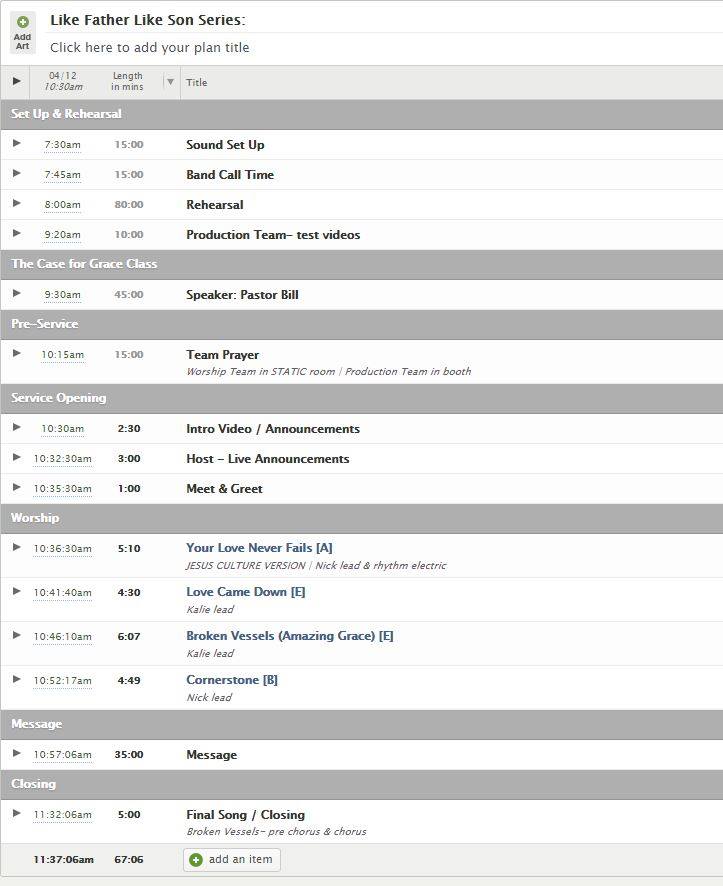Music Directors: How To Lead Your Worship Team Effectively with These 10 Tips
Learn how to lead worship effectively with these tips. Whether you’re new or seasoned, whether in a big church or small, it always takes learning new things.

Being the music director of a worship team is no small feat. Sometimes the worship leader is the music director, but in larger churches or churches with large worship teams, there may be a separate music director. In any case, the role of the music director at a church encompasses many responsibilities. Not only is the music director part of planning the worship set itself, but they are also responsible for knowing each band member's role and musical parts, leading the band through rehearsals and services, and being able to get the band on track should anything deviate from the original plan. So to help you be the best music director you can be, we’re going to give you ten tips on how to lead your worship team effectively!

1. Plan The Set in Advance
Whether you are the worship pastor at your church or you are working with the worship pastor, it’s a good idea to plan your set a few weeks in advance. If you can plan a whole month in advance, that’s even better! Doing this allows you to memorize the ins and outs of the service and gives your musicians plenty of time to practice.
As soon as your service is planned, you need to inform your team. Provide a roadmap of the service as well as charts or sheet music and recordings of each song. Make sure that you’ve also played through each arrangement and made sure that it is 100% accurate so that you can avoid confusion or having to make changes during rehearsal. An excellent resource for church planning is Planning Center Online, where you and your team members can all view and access the same service plan, charts, sheet music, and recordings.

Example of a Planning Center Online Template
If any changes are made to the service after its initial creation, make sure to send your team updates! And if you need a little help planning your worship set, check out our article 5 Tips for Creating a Worship Set.
2. Think Through Transitions
As the music director, you will have to guide your team from one song to the next, as well as other transitional moments during the service (greeting time, offering, video moments, etc.). Whether you are using click tracks, a talkback microphone, or neither, it’s important to think through these transitions ahead of time. By doing this, you don’t have to take up rehearsal time brainstorming or experimenting.
3. Speak The Language
Just imagine if you were a drummer and someone asked you, “Hey, can you do that one cymbal thing like in the second verse, too?” You’d be like:

Speaking the language of each musician on the team is important for communication on stage. This may take a little bit of time and education, but as the music director, you need to be able to address each musician or vocalist in a way that makes sense to them. Knowing the correct terminology will not only save you a lot of time and confusion, but it will also communicate to the band members that you know what you are talking about and in turn, they will trust your opinions.
4. Know The Roles
Just like knowing each musician's language is important, so is understanding the role they play on the stage. If you’re in rehearsal and something sounds off, or a band member has a question, you should be able to pinpoint which part isn’t syncing up and know how to fix it. For example, if there is a song with a prominent lead guitar line and your guitarist is missing one note by a step, you should be able to hear it and correct it. Again, this may take a bit of time in the preparation process, but it will save you time later on when you’re trying to figure out why the song doesn’t sound the way it’s supposed to.
5. Be Confident in Rehearsal
There is no doubt that being the music director can be intimidating at times. As we said before, leading an entire team of musicians is a big responsibility!

What you have to remember is that the band is counting on you to lead them. The position of music director wouldn’t exist if it wasn’t needed. That doesn’t mean you can’t be open to other ideas and or opinions, but your extensive preparation process and knowledge of the music and worship set has qualified you to be able to make decisions and take charge of the team. So don’t be afraid to lead confidently. Your worship team will respect you for it and appreciate the time and energy you have put into being ready for this role. And if you’re still feeling insecure, spend more time preparing and knowing your set inside and out.
6. Make Good Use of Your Time
More often than not, you will be working with volunteers on the worship team. You may even be a volunteer yourself! To respect everyone’s time and have efficient rehearsals, it’s important to manage time well. This means being as prepared as possible, knowing when to run certain songs or sections more than once, and knowing when to move on. Here is an example of an efficient rehearsal roadmap:
- Allow for time to catch up, pray, and make sure everyone is ready to go at the start of rehearsal (15 minutes)
- Give a quick overview of the service from start to finish (5 minutes)
- Work out each song one at a time by explaining the roadmap, giving it a run through, and working out any kinks encountered (time will vary depending on the length of your set)
- Run the set from start to finish with no stops and take notes as you go (time will vary)
- Huddle up and give the team any necessary reminders and pray (10-15 minutes)
Altogether, try to keep your rehearsals around 2 hours or less. We recommend having one longer rehearsal during the week and then doing a quick run through before services on the weekend. Respecting the time of your musicians and volunteers will create an atmosphere that people want to be a part of, rather than a long and cumbersome process that drains the energy from your team.
Pro Tip: Have your vocalists rehearse separately either before or at the beginning of a rehearsal. Then, when they join the band, they won’t have to take time to work out any parts.
7. Over-Communicate
The key to successfully leading your worship team is communication.

As we said before, your team is counting on your leadership and guidance, so don’t be afraid to over-communicate! It’s essential that everyone is on the same page and no one is left guessing about a chord progression or transition. Make sure to ask if there are any questions or problem areas, and be patient when there are. We mentioned that you will more than likely be working with volunteers, and the reality is that in the craziness of life, everyone may not always be as prepared as you expect them to be. The good news is, you will be prepared and ready to help out where it’s needed! So expect that you may have to over-communicate at times, but your team will be thankful that they’re in the know instead of battling the nerves of confusion.
8. Be Ready to Think On Your Feet
Anyone who has ever served as a member of a worship team knows that anything can happen on a Sunday morning! Sometimes your pastor may want a different song at the end of the service, a baptism may go longer than expected, or a great moment for some spontaneous worship may occur. You may also encounter technical issues, such as a click track that suddenly goes out, a missed cue, or a lyric screen that goes dark. It’s your job as the music director to guide your team through the unexpected situations. This can be nerve-wracking at first, but over time, you will become more and more comfortable with stepping up and taking control of a situation.
Pro Tip: A talkback microphone is a microphone that you can speak into and only your band members can hear in their in-ear monitors. If you can access this for your worship team, it will ensure that you can guide the band effortlessly.
If you don’t have access to a talkback microphone, it may be a good idea to come up with some signals ahead of time. For example, you may make a “C” with your hand to signify going back to the chorus. In any case, always be ready to think on your feet!
9. Know When to Relax and Have Fun
While many musicians excel in being relaxed and carefree, the job of the music director can be quite stressful at times. There are a lot of moving parts in a worship set and many people to manage.

While being prepared and organized is essential (and part of the job), remember that there are times when it’s necessary to relax and have fun! After all, your volunteers are there because they love music and using their talents to serve. You want to preserve those passions and nurture a team that people are excited to be a part of. As a music director, you should practice patience, as it is inevitable that you will have to exercise it. In times of frustration, remember why you are all there and let yourself relax.
10. Build Relationships With Your Team
Whether you have the same team every week, or your teams are on a rotation, it’s essential to build relationships with your musicians. Not only will it make services and rehearsals more fun, but you will begin to understand the different personalities and communication styles on your team. You can eventually put this knowledge into action by creating an environment that is suitable and comfortable for everyone, and in return, your band will begin to play off of each other and create a sound that is unified.

To build relationships with members on your team, try to have one or two conversations unrelated to rehearsal each time you meet. Talk about life outside of your church, ask about families, and if you’re comfortable, make plans to hang out on your own time. You could do team outings to the movies or sporting events, play a round of mini golf, or anything else that comes to mind! Whatever you choose to do with your team, the relationships that evolve will make your job as a music director much less stressful, and much more meaningful.
We hope that these tips have been helpful to you on your music director journey! Remember to check out Planning Center Online for all of your service planning needs, and if you are looking for a way to strengthen your team musically, we recommend looking into The Worship Initiative. Started by Shane & Shane, The Worship Initiative is an online resource for church musicians to lead confidently. You will find tutorials for every instrument and voice in an ever-growing catalog of your favorite worship songs, as well as devotionals and spiritual guidance. The Worship Initiative can also be integrated with Planning Center Online if you want to take advantage of both of these fantastic resources. We wish you the best of luck directing your worship team, and we already know you’re going to be great!


